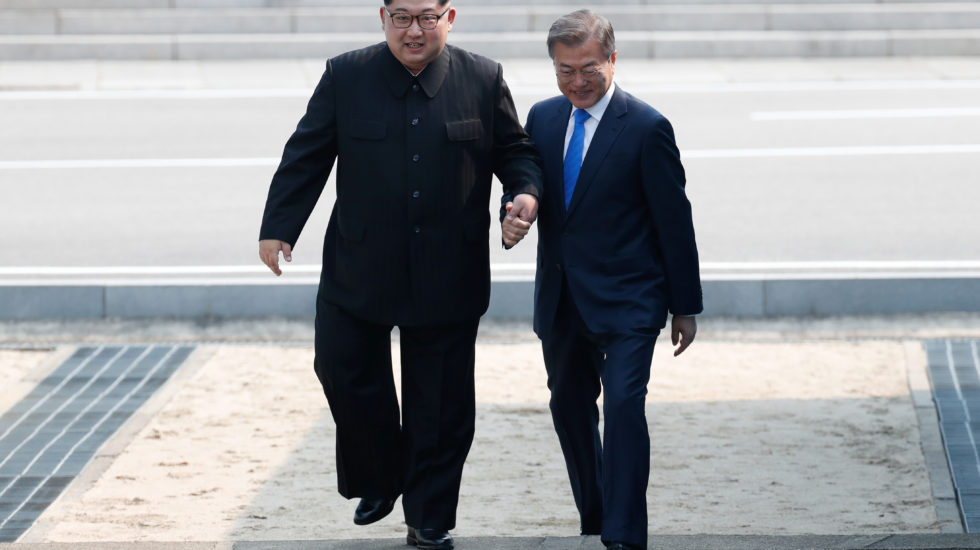To see the leaders of the two Koreas meeting at the DMZ is nothing short of remarkable, a photo-op for the ages. But what does it mean for the peninsula and what are the true motives of the North? Yesterday, Kim Jong-un crossed the heavily armed border into South Korea to meet with president Moon Jae-in and discuss a what is being called a landmark peace accord between the two enemy nations.
- Both leaders behaved quite warmly with each other and signed a document called the “Panmunjeom Declaration,” which addresses the possibility of denuclearization in North Korea.
- While the details concerning this process remain vague, it set “the stage for Kim to meet with President Trump at the end of May or early June.”
When the two Korean leaders shook hands Friday, Kim Jong Un wasn't the only one to make history by crossing the border. He also invited South Korean President Moon Jae-in to cross briefly into the north. https://t.co/hRqY5PMJua pic.twitter.com/Y6An6kaSMc
— CBS News (@CBSNews) April 27, 2018
While most politicians and analysts in Washington and Seoul were pleasantly surprised, many questions remain. According to vox.com’s Alex Ward, “Diplomacy with North Korea is hard for one simple reason: Pyongyang promises a lot but then doesn’t follow through.”
Kim seemed aware of his country’s problems with backing away from diplomatic solutions like this.
“The expectations are high and we have learned a lesson from previous times and even if we have good agreements and implementations don’t follow, they will disappoint people who had high expectations,” he stated to Moon.
BREAKING: Kim Jong Un tells his southern rival he doesn't want repeat of past "where we were unable to fulfill our agreements."
— The Associated Press (@AP) April 27, 2018
Kim Jong Un's message in the visitor's book in South Korea:
New history from now on, [we are] at the starting point of a historic new peace era.
Kim Jong Un – April 27 2018 pic.twitter.com/ZSgOYxpr2x
— Anna Fifield (@annafifield) April 27, 2018
Another concerning issue is denuclearization. The Post says that the wording on the document, “through complete denuclearization,” raises the possibility that South Korea would not be allowed any nuclear weapons along with the North. Since the U.S government regularly sends these weapons to the South during their military exercises, this is a major aspect of U.S-South Korea relations. It appears that the North might subtly try to change the nature of that alliance.
BREAKING: North and South Korea agree to end the Korean War and and to "transform the demilitarized zone into a peace zone"
— Axios (@axios) April 27, 2018
However, Axios cautions that both North and South Korea might want to cut the U.S out of the equation completely. “If an agreement ultimately means no need for the United States…the peninsula tilts away from security and towards economics.”
It also opens up the possibility that China might try to swoop in and assert control over the whole Korean affair. And remember, the two Koreas have been talking, off and on since 1972.
Kim Jong Un is a tyrant. Talk of peace in Korea doesn't change that. | @adamcathcart for @CNNopinion https://t.co/kGCPomTWxR pic.twitter.com/DwzF8Tq4n1
— CNN International (@cnni) April 27, 2018
